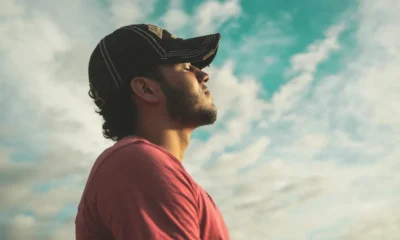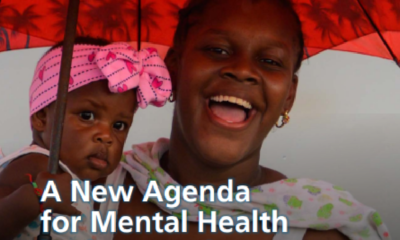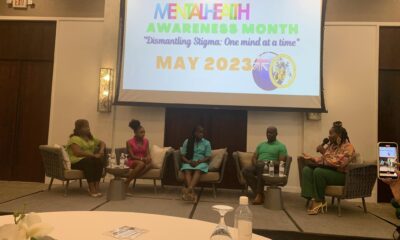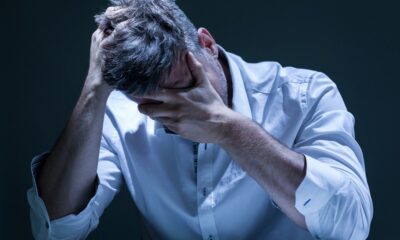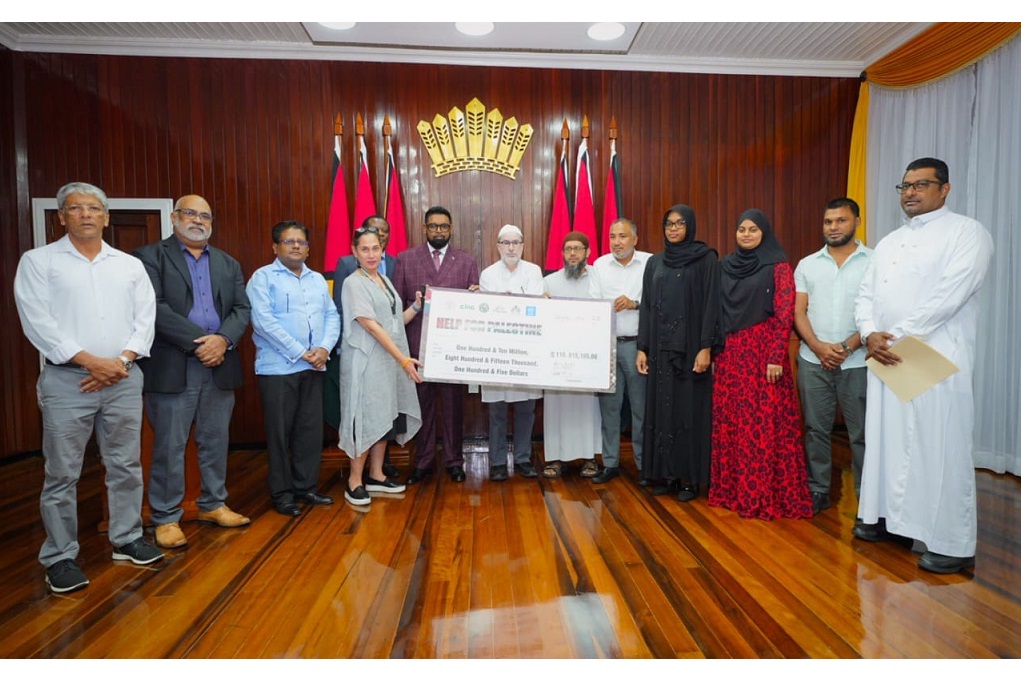October 6, 2023 – It’s common to feel turned upside down whenever something unexpected happens in our lives or because the state of the world is … well, not so great. When this occurs, we may often attribute our lingering sense of doom and dread to depression.
Diagnoses of depression have been on an upward trend, particularly during the Covid-19 pandemic, with nearly all populations experiencing increases in depression. In The Bahamas, many persons suffered post-traumatic stress, anxiety and depression following the double impacts of Hurricane Dorian and the Covid-19 pandemic. In 2020 alone, depression wascommon among nearly 1 in 10 Americans and almost 1 in 5 adolescents and young adults (ages 18 to 25).
COVID-19 not-withstanding, current numbers reflect 5% of Americans over the age of 18 self-report regularly having feelings of depression — but what does depression really feel like? And how do you know if you’re depressed or just temporarily weighed down by everything that’s happening around you?
Clinical Psychologist at Cleveland Clinic, Ohio Dawn Potter, PsyD, explains in detail what sets depression apart from common sadness and when it’s important to reach out for help.
How depression really feels
Depression is often characterized as “deep sadness” — but it’s actually a complex condition that’s about more than just feeling sad.
“Everybody feels sad and it’s normal to feel sad sometimes. But there are a couple of differences between depression and sadness,” clarifies Dr. Potter. “One thing that sets them apart is how often it is and how long it lasts. But another is that depression comes with a whole bunch of other symptoms that are beyond the feeling of sadness. We don’t diagnose depression based on just a subjective sense of feeling sad alone.”
To receive a diagnosis of clinical depression (major depressive disorder), you would typically experience a consistent and persistent depressed mood or loss of interest in things you enjoy and/or in your day-to-day activities along with at least three or more of thefollowing symptoms for a minimum of two weeks. If you do not have both depressed mood and loss of interest, you must have four of the other symptoms:
- Sleep disturbances, like sleeping too much or too little.
- Low energy or fatigue.
- Excessive feelings of guilt, shame or self-blame when it’s not warranted.
- Difficulty concentrating or focusing.
- Psychomotor agitation (like observable fidgeting, restlessness, pacing or difficulty sitting still) or psychomotor slowing (like reduced cognitive thinking, decreased movement and slower speech than you’re used to).
- An increase or decrease in your appetite that may result in weight gain or weight loss.
- Thoughts of suicide or recurring thoughts of death.
“Depression is very physiological,” says Dr. Potter. “Depression is more than feeling sad, and a person doesn’t necessarily have to feel sad to be depressed. Depression can sometimes feel like the absence of something rather than the presence of sadness.”
It’s a whole-body experience that affects your physical, mental and emotional health. If you’ve ever heard the saying, “You see the world through rose-colored glasses,” depression, says Dr. Potter, is like viewing the world through gray- or blue-colored glasses.
“With depression, you really only see the negative side of things,” she says. “Depression can cause us to have disturbances in our evaluations of ourselves and other people and it can lead us to make persistent, negative attributions about our self-worth.”
For example, someone without depression may get a bad grade on a test and think to themselves, How did I get here and how can I do better next time? They might then take the necessary steps to study more or plan more efficiently for the next exam. But someone with depression may internalize their feelings and attribute the result of their exam to having been a failure.
“It’s persistent, it’s internal and it forces you to put blinders on,” explains Dr. Potter. “It’s thinking, I’m going to fail at everything, rather than being situational, and that’s what keeps people depressed — that negative thinking.”
But solving depression isn’t always as simple as getting out of the loop of negative self-talk. For some, depression can make everything feel more difficult. You can feel like things are out of control or that you can’t focus on anything meaningful. You might feel weighed down by ruminating thoughts or feel stuck in a fog.
“For someone who’s depressed, it can be hard to take back agency in your life and you can often lose sight of the ability to do things for yourself,” notes Dr. Potter. “That’s why we suggest therapy because it can help you can find a way to do things differently and manage your symptoms if you’re given enough support and information.”
Do symptoms vary by severity?
Some people may experience depression for shorter periods of time that seem to come and go (as tends to be the case with seasonal depression or seasonal affective disorder). That’s not to say symptoms of seasonal depression are any less severe than other types. But some people can experience symptoms of depression for prolonged extended periods of time. And the longer depression goes undiagnosed, the more severe it can become.
Persistent depressive disorder (PDD) is a form of chronic depression in which you experience symptoms of depression for most of the day on most days for two or more years. Sometimes, a major depressive episode can also occur as a result of having other mental health conditions. People who are more susceptible to experiencing depression may be diagnosed with:
In the most severe cases of depression, people may also experience elements of psychosis, a collection of symptoms that include hallucinations or delusions.
“People often self-report having anxiety and depression and we know those can coexist,” says Dr. Potter. “People with generalized anxiety disorder can be vulnerable to depression because they get exhausted from being worried all the time. And people who have experienced traumatic events or losses can also become depressed.”
When to reach out for help
If you’re checking at least five of the boxes on symptoms of depression, it may be time to talk to a healthcare provider about getting a diagnosis for depression. And if you experience any suicidal thoughts, it’s important that you seek help from a medical professional immediately who can offer relief and assistance.
But even if you only experience a handful of symptoms or you have a baseline concern for your mental health and/or physical well-being, seeing a healthcare provider about your concerns can be beneficial.
“Even if you’re having less than five of these symptoms but you’re really having trouble with your day-to-day activities and things are feeling a lot more difficult for you to do than they normally would, or what you’re feeling is really bothering you consistently, asking for help can be an important decision to make,” stresses Dr. Potter.
“Because a lot of the symptoms have physical components to them, a healthcare provider might want to rule out other health problems or mental health conditions that could be contributing to your symptoms.”
Other resources for depression
For anyone in need of additional assistance, these resources can be helpful in answering any questions you have and/or help you find a therapist no matter where you are with your mental health:
- Suicide Prevention Hotline: (242)322-2763 or (242) 422-2763 (also known as theNational Hotline for Crisis Intervention)
- The Community Counselling and Assessment Centre at Sandilands at (242) 323-3293/5.
- Domestic Violence Hotline – (242) 376-3538
- Domestic Violence and Counselling and Tips Unit – (242) 604-4300
“If you’re demotivated, feeling flat, empty or meaningless, you might have depression,” reiterates Dr. Potter. “You don’t want to self-diagnose, but if you recognize having any of these feelings, it’s time to talk to somebody.”
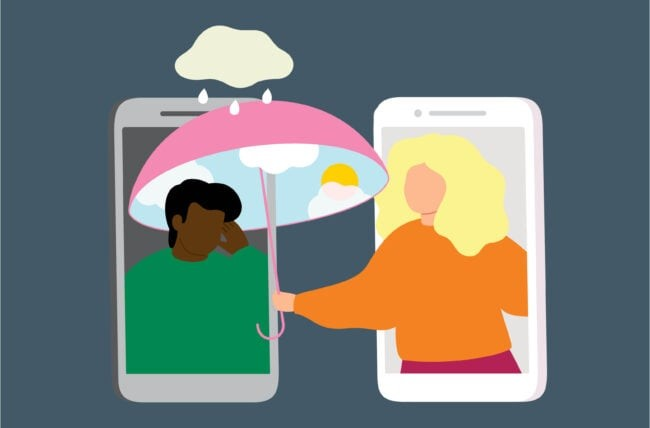

 News1 week ago
News1 week ago
 TCI News6 days ago
TCI News6 days ago
 Caribbean News1 week ago
Caribbean News1 week ago
 Education1 week ago
Education1 week ago
 Caribbean News1 week ago
Caribbean News1 week ago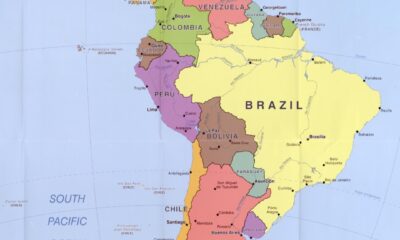
 Latin America and Caribbean3 days ago
Latin America and Caribbean3 days ago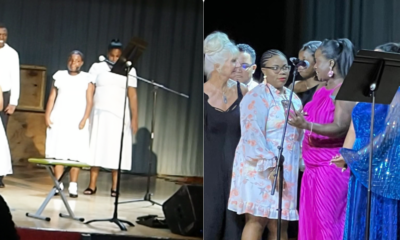
 News1 week ago
News1 week ago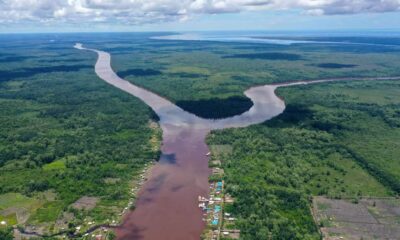
 Caribbean News1 week ago
Caribbean News1 week ago
